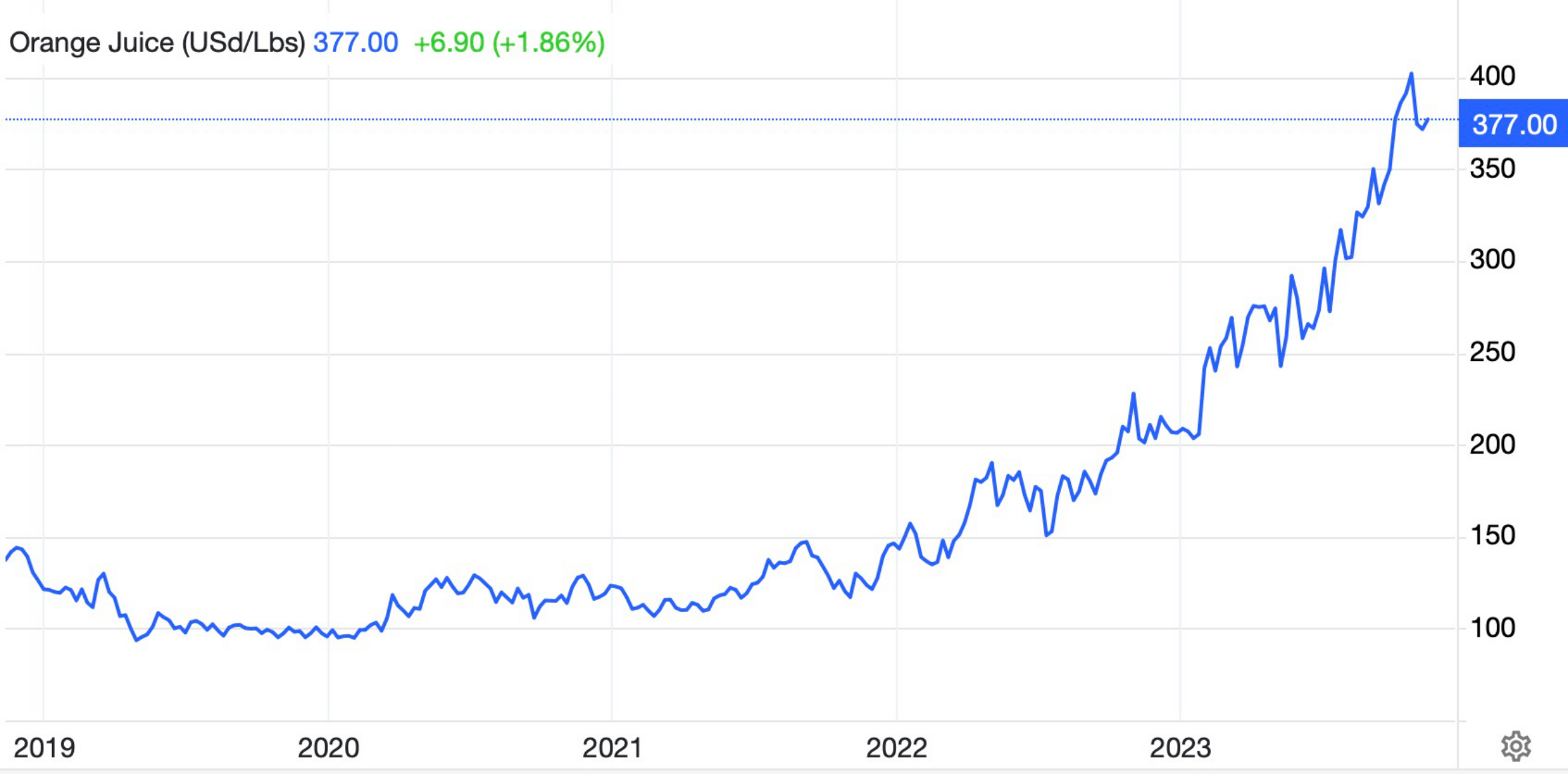Orange Juice Prices Reach Record Highs Amid Production Challenges
In a stunning development, orange juice prices soared to unprecedented heights on October 31, reaching their highest levels since futures trading began in New York in 1966. This dramatic surge was fueled by a bleak production outlook in the United States, Brazil, and Mexico, which collectively contribute significantly to the global orange juice supply.
The price spike was evident in the January contract of frozen concentrated orange juice (FCOJ) on the Intercontinental Exchange (ICE), which peaked at an astonishing $4.17 per pound during the trading session. Although it later settled at $3.83 per pound, the contract has seen an extraordinary 90% increase this year.
Traders and market analysts are astounded by this unprecedented development. Dave Reiter from Reiter Capital Investments LLC expressed his amazement on X, a social media platform formerly known as Twitter, highlighting the unforeseen and highly profitable nature of the current market. “Did anyone predict $4.00 orange juice?” he queried, emphasizing the exceptional profit potential arising from these market conditions.
The significant price movement is partly attributed to the relatively small trading volume of orange juice compared to other commodities. Darin Fessler, SVP and Market Strategist at Lakefront Futures & Options, noted that orange juice is “very thinly traded,” making its market more susceptible to fluctuations than more heavily traded commodities like corn or soybeans. To illustrate, the January OJ position had an open interest of 8,111 lots, a stark contrast to over 435,000 lots for ICE’s raw sugar, a more commonly traded soft commodity.

Understanding Key Financial Roles: Trader, Market Strategist, and Quant
In the complex world of finance, various professionals play crucial roles in managing and growing investments. Among these are traders, market strategists, and quants, each with distinct functions and expertise.
Traders: The Dynamic Dealers of Finance
Traders operate in financial markets, buying and selling assets like stocks, bonds, commodities, and currencies. Their primary aim is to profit from market movements, capitalizing on price fluctuations. They may work for themselves, trading personal funds, or on behalf of a company or clients. The key skill for a trader is the ability to make quick, informed decisions, often in a high-pressure environment, to maximize profits or minimize losses.
Market Strategists: The Navigators of Investment Paths
Market strategists specialize in analyzing financial markets and broader economic trends. Their role involves understanding and interpreting various factors that could affect investment outcomes, including economic indicators, political events, and market trends. They work primarily for financial firms or investment funds, using their insights to advise on long-term investment strategies. Unlike traders, market strategists focus on developing a big-picture view of the markets to guide future investment decisions rather than actively buying and selling assets.
Quants: The Mathematical Minds in Finance
Quants, or quantitative analysts, bring a mathematical and statistical approach to finance. They develop complex models and algorithms to predict market behavior and identify investment opportunities. Quants typically have strong backgrounds in fields like mathematics, statistics, or engineering. Their work is crucial in areas like risk management, derivative pricing, and algorithmic trading. In the modern financial landscape, quants play a pivotal role, especially in firms that emphasize data-driven and automated trading strategies.
